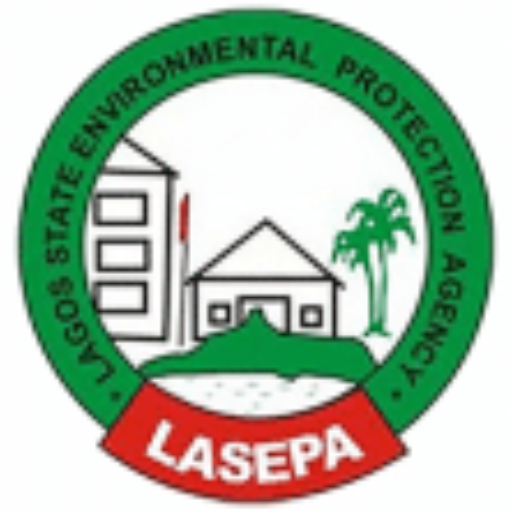
Environmental Law
LASEPA Law
Environmental Management Protection Law 2017 Part VI
- Lagos State Environmental (Textile, Wearing Apparel, Leather and Footwear Industry)Regulations, 2014;
- Lagos State Environmental (Domestic and Industrial Plastic, Rubber and Foam Sector) Regulations 2014;
- Lagos State Environmental (Food, Beverage and Tobacco Industry) Regulations 2014;
- Lagos State Environmental (Basic Metal, Iron and Steel, Fabrication and Metal Products) Regulations 2014;
- Lagos State Environmental (Chemicals, Pharmaceuticals, Soap and Detergents)Regulations 2014;
- Lagos State Environmental (Non-Metallic Mineral Products) Regulations 2014;
- Lagos State Environmental (Sanitation and Waste Control) Regulations 2014; and
- Lagos State Environmental (Noise Standards and Control) Regulations 2014.
The Regulation of Smoking Law
No Smoking in Public Places Law
- The regulation imposes a State-wide ban on smoking in public places, enclosed areas and vehicles, etc where non-smokers may be unduly exposed to cigarette smoke.
Industrial Guidelines
LASEPA’S expectations from industries
- Submission of Technical Reports (Environmental Impact Assessment (EIA) Report and Environmental Audit Report (EAR) by LASEPA accredited Environmental Consultants)
- Submission of Material Safety Data Sheet (MSDS) of stored chemicals.
- Installation of an adequate Effluent Treatment Plant (ETP) for wet process industries and submission of monthly Effluent Analysis Report.
- Obtain petroleum storage permit.
- Obtain chemical storage permit.
- Adopt clean production practices to attain cleaner production by conversion from diesel to gas.
- Pasting corporate Environmental Policy duly signed by the MD/CEO at the entrance/strategic points within the facility.
- Provision of adequate conspicuous pictorial Environmental Safety and Warning Posters at strategic points within the facility.
- Installation of Best available abatement technology for Air Pollution/Particulate matter, emission, noise pollution amongst others. (e.g Cyclones, dust extractors, etc)
- Provision of adequate Personal Protective Equipment (PPE) for workers and enforcement of usage.
- Provision of waste receptacle with a covering, its maintenance and evidence of waste manager’s receipt/manifest of disposal.
- Good housekeeping/aesthetic environment.
- Payment of annual Environmental Development Charge (EDC)
- Analysis of fumigants/chemicals used and accreditation of fumigators to be carried out by LASEPA.
- Provision of effective fire extinguishers and water hydrants
- Ensure proper oil and grease management (i.e. avoid spills).
- Containerization of used/spent oil. Do not pour used engine oil into the drains but contain it in cans. Do not pour it onto the ground, for it seeps/percolate into the underground and pollutes underground water.
- Provision of medical facilities i.e first aid facilities, on spot clinic, retainership with close hospitals.
- Provision of standard cloakroom and modern toilet facility.
- Landscaping and proper maintenance of drains (within and outside the premises)
Regulatory Services
Environmental Protection
As the regulatory arm of the State Government on the environment, the Lagos State Environmental Protection Agency (LASEPA) is saddled with the responsibility of maintaining a healthy environment through adequate regulatory mechanism. In meeting these statutory responsibilities, LASEPA recorded outstanding achievements in the following areas: To ensure compliance with environmental standards, LASEPA monitored 502 manufacturing industrial premises and 86 hotels/eateries within the state.About 70% monitored facilities complied with all environmental requirements.
In a bid to reduce Green House Gas (GHG) emissions, LASEPA carried out a pilot survey on Okobaba sawmill to convert the huge sawdust into useable bio fuel to replace fossil fuel used in industries. From the pilot study so far, there is huge prospect of significantly reducing GHG emission in the state. LASEPA has also initiated a law to reduce pollution from vehicle exhausts. As Industrial activities spread all over the state, necessitating wide coverage in monitoring environmental compliance, LASEPA resuscitated an area office in Ikorodu as part of the plan to increase the number of area offices across the state. Aware that Lagos State is the destination of most E-Waste entering Nigeria, LASEPA organised in 2011 the first International E-Waste summit to sensitise Lagosians on the dangers of used Electrical Electronic Equipment.
The agency also carried out a study on the quality of underground water table in two (2) Local government Areas of the state; Kosofe and Mushin LGA’s, and discovered high level pollution through random sampling taken from borehole and well water in residential areas and filling stations in the two Local Government Areas. Propelled by the need to improve on laboratory analysis of hydrocarbons of water sample from oil and gas sector as well as oil polluted areas, the Agency resuscitated and upgraded the gas chromatography (GC) which is now in use. In the bid to ensure a cleaner environment and compliance to regulatory standards, LASEPA sanctioned and sealed off erring Industries across the state.
In the same vein, the Agency carried out destruction exercise of Hazardous chemicals and products in 5 Industrial facilities across the state and issued certificate of destruction to the concerned companies. The destruction exercise became necessary to prevent circulation of such expired products into the market. So far the Agency has carried out successfully safe destruction of expired products/raw materials from several companies with Certificates of Destruction duly issued to the facilities.
Noise Pollution Control
Guidelines on Noise Pollution
- The standard approved noise level in residential areas shall not exceed 55 decibels during the day and 45 decibels at night.
- The standard approved noise level in industrial areas shall not exceed 90 decibel during the day.
- The standard approved noise level for commercial areas shall not exceed 70 decibel during the day.
- All religious houses, Club Houses and other entertainment outlets are to operate within enclosed and soundproof environments with regulated use of speakers, giving due consideration to neighbouring residents.
- The above facilities shall equally reduce the number of internally placed speakers to the barest minimum to address only the congregation and clientele and not the neighborhood..
- All open air and outdoor activities shall be carried out with due authorization from relevant Government agencies while those involving the use of amplifiers and speakers shall hold after due authorization from LASEPA without contravening the stipulated approved noise limit for that environment.
- The use of power generating sets in commercial, residential and industrial areas shall be in compliance with the stipulated noise levels without any negative impact on human health and the environment.
- The use of megaphones/amplifiers at motor parks, commercial centers and more shall be duly controlled/regulated to ensure that the permissible noise limit for the environment is not exceeded.
- Religious activities are to be carried out in a completely enclosed structure while uncompleted buildings and tents are not allowed.
- Pending enclosure of facilities that are yet to be enclosed/soundproof, no musical instruments shall be used at night so as not to disturb the neighborhood especially during week day evening services and night vigils for religious houses, and events on entertainment/clubbing activities etc.
- Obtain noise permit for open air shows, crusades and promotional advertisements etc
- The use of power generating plants in residential, commercial and industrial outlets shall not affect others by way of noise pollution.
Monitoring and Compliance
1.0 Proposed regulation on the prohibition of management and handling of used oil and oily waste in the state:
- No person shall carry on the business of collection, storage, processing, handling, treatment, recycling and disposal of used/waste oil and oily wastes without permit;
- The enforcing authority shall regulate the collection, handling, processing, treatment, recycling and disposal of used/waste oil and oily waste generated in the State
- All private and government establishment that generates used/waste oil and oily waste in the State shall register with the enforcing authority
- No oil in any form shall be discharged into the public drain, rivers, lakes, sea, land or underground injection in the State.
2.0 Requirements and the expectations of the agency from Fast Foods, Hotels, Shopping Malls, Restaurants, Supermarkets, etc in Lagos State
-
Submission of Environmental Technical Reports (EIA, EA, EAR, etc). The report should among others address the following
(i) Concise description of the project;
(ii) Positive/Negative Impacts of the Project on the Environment;
(iii) Mitigative measures;
(iv) Socio-Economic Impacts;
(v) Good house-keeping; (vi) Quality Control, etc - Standard Environmental Management Procedures which includes the installation of abatement facilities, treatment facilities for wastewater generated from the kitchens (e.g. fats trap, oil-water separator – OWS) and the sewage (e.g. Wastewater Treatment Plant – WWTP). Others include adequate solid waste and spent oil (from power generators) management.
- Standard Sanitation Procedures which includes the provision of modern toilet facilities; regular cleaning and maintenance of premises and drainage (within and outside), availability of potable water for good house-keeping, beautification of premises(within and outside) as well as adequate maintenance of flowers, lawns and gardens, observation of monthly environmental sanitation exercise for commercial outlets every last Thursday of the month.
- Standard Operating Procedures for the Health of Workers such as Medical Tests for workers before employment, provision of personal protective wears, good house-keeping procedures, retainer agreement with a hospital/clinic; monthly fumigation of premises, food handlers’ test on each worker twice in a year.
- Standard Operating Procedures (SoP) for production and quality control
- Payment of the annual Environmental Development Charges (EDC). The EDC is a charge paid by all users of the environment.
